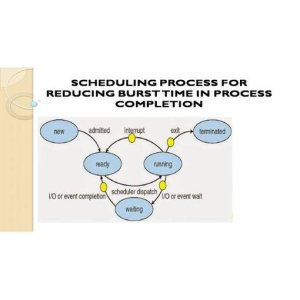Enhancing Epilepsy Diagnosis through PCA-IFS Feature Selection and Multi-class SVM Classification.
Problem Definition
Epilepsy is a complex neurological disorder characterized by abnormal electrical and chemical activities in the brain, leading to recurrent seizures. The difficulty lies in detecting these seizures at an early stage, as they are often short and may go unnoticed by patients. Current methods for seizure detection primarily focus on feature extraction and training classifiers for binary classification of EEG data. However, the limitations of these techniques are apparent, as they do not allow for multiple output classes beyond standard and epileptic subjects. This hinders the accuracy and effectiveness of the detection model, making it challenging to interpret the results and understand the patient's condition.
As a result, there is a clear need for a more advanced classification or detection model that can handle multiple output classes with greater accuracy and simplicity. By addressing these limitations, a new model can significantly improve the early detection and management of epilepsy, ultimately enhancing the quality of care for individuals living with this condition.
Objective
The objective is to develop a machine learning algorithm-based predictive model using Multi-class SVM to differentiate between patients with and without seizures. The model will implement feature extraction techniques such as PCA to handle multiple output classes and improve detection accuracy. By addressing the limitations of current seizure detection methods, the goal is to enhance early detection and management of epilepsy, ultimately improving the quality of care for individuals with this condition.
Proposed Work
After analyzing the literature and finding the problems in current systems, a machine learning algorithm-based predictive model is presented in this section, which will be used to differentiate between patients with and without seizures. To overcome the issues and to handle multi classes as detection output, a Multi-class SVM will be implemented. Along with that, to reduce the complexity of the system, the feature model will have the capability to handle some features that will not only extract the feature but also will select useful information from real data, and that will be done using infinite feature selection technique. Specifically, for feature extraction, PCA techniques will be used. The reason behind choosing PCA as a feature extraction technique is as follows: it removes Correlated Features, improves Algorithm Performance, reduces Overfitting, improves Visualization, and independent variables become less interpretable.
These improvements in the proposed model will enhance the detection accuracy of the system and also provide a useful model for seizure detection.
Application Area for Industry
This project can be utilized in the healthcare and medical equipment manufacturing industries to improve the detection and monitoring of epilepsy in patients. By implementing the proposed machine learning algorithm-based predictive model, healthcare professionals can differentiate between patients with and without seizures more accurately and efficiently. The use of a Multi-class SVM will allow for handling multiple output classes, providing a more comprehensive classification system. Additionally, the incorporation of feature extraction techniques such as PCA will enhance the system's performance by selecting and extracting relevant information from EEG data, leading to improved detection accuracy and reduced complexity in the system. Overall, the implementation of these solutions in the healthcare industry will enable early detection of epilepsy and provide valuable insights for better understanding and managing the condition in patients.
Application Area for Academics
The proposed project on developing a machine learning algorithm-based predictive model for seizure detection in epilepsy patients has the potential to significantly enrich academic research, education, and training in the field of neuroscience and biomedical engineering. By implementing multi-class SVM and advanced feature extraction techniques such as PCA, the project aims to overcome the limitations of existing systems and provide a more accurate and efficient model for seizure detection.
Researchers in the field of neuroscience can benefit from the development of this model by using it as a benchmark for comparison with existing techniques and exploring new avenues for improving seizure detection in epilepsy patients. MTech students and PhD scholars can utilize the code and literature of this project to further their research in machine learning algorithms and their applications in biomedical signal processing.
Moreover, the innovative approach of using multi-class SVM and feature extraction techniques in the proposed model opens up new opportunities for exploring different technologies and research domains within educational settings.
The application of infinite feature selection and PCA in feature extraction can enhance the performance of the system, making it more robust and accurate in detecting seizures early on.
In conclusion, the proposed project not only contributes to advancing research in epilepsy detection but also provides a valuable resource for academic training and education in the field of neuroscience and biomedical engineering. The future scope of the project includes expanding the model to handle different types of seizures and improving its performance through continuous refinement and validation.
Algorithms Used
The machine-learning based predictive model for seizure detection will utilize Principal Component Analysis (PCA) for feature extraction. PCA will help in removing correlated features, improving algorithm performance, reducing overfitting, improving visualization, and making the independent variables less interpretable. Infinite Feature Selection will be used for selecting useful information from real data to reduce system complexity. Additionally, a Multi-class SVM algorithm will be implemented to handle multiple classes of detection output, enhancing the accuracy of the system and providing a useful model for seizure detection.
Keywords
EPILEPSY, seizures, neurological disorder, electroencephalogram, EEG data, RBAs, Linear SVM, multi-class output, classification model, machine learning algorithm, predictive model, feature extraction, feature selection, multi-class SVM, infinite feature selection, PCA technique, Correlated Features, Overfitting, Algorithm Performance, Visualization, independent variables, seizure detection, deep learning, pattern recognition, data preprocessing, dimensionality reduction, performance evaluation, accuracy, precision, recall, support vector machines, random forests, neural networks.
SEO Tags
Epilepsy, Seizure Detection, Machine Learning Algorithm, Multi-class SVM, Feature Extraction, Feature Selection, PCA, Dimensionality Reduction, Data Preprocessing, Deep Learning, Pattern Recognition, Classification Algorithms, Support Vector Machines, Random Forests, Neural Networks, Performance Evaluation, Accuracy, Precision, Recall, Neurological Disorders, EEG, Non-linear Analysis, Non-stationary Signals, Research Scholar, PhD, MTech Student.
| Shipping Cost |
|
No reviews found!


















































No comments found for this product. Be the first to comment!